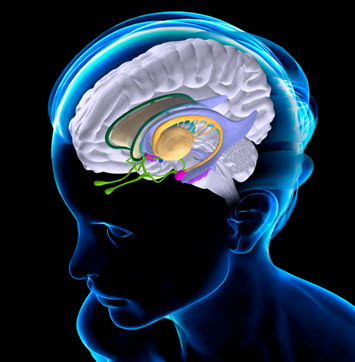
Tension appears to be an ongoing friend in our fast-paced environment. However, what if I told you that controlling your stress may be easier than you think? This is the place to explore “Breaks & Stress: Gut Health, Brain Reset, Multitasking, Breathing.” We’ll discover the significant effect that breaks have on our stress levels along this adventure. You will explore useful strategies such meditation which may change our viewpoint on tension, to learning how gut health affects our mental health to learning about the myth of multitasking and the power of brain resets. So come along with us as we set off on a journey to increased wellbeing, resilience, and relaxation.
The Importance of Taking Breaks
We need to take breaks in order to maintain our health and productivity. When we work or study for extended periods of time without taking breaks, we lose focus and become less productive. Taking a break may help us refocus & be more creative because it gives our brains a chance to recover. They also lessen stress and guard against burnout. A fast stroll, a quick stretch, or just a few minutes of relaxation—breaks allow us to rejuvenate both our bodies and minds. You may enhance our overall performance and preserve a healthier balance between work and life by adding frequent breaks into our normal routines. Thus, remember to take rests; your mind and your body will appreciate it!
Your Gut Health Impacts Your Stress
Your level of tension is greatly influenced by the health of your gut. Because of the gut-brain axis, which connects the two organ systems, digestion can have an impact on mental health. Tension & happiness are controlled by neurotransmitters like serotonin, which are produced when your gut microbiota is in equilibrium. On the other hand, aberrant gut flora can cause elevated levels of stress and anxiety. Consequently, successful control of stress involves preserving gut health with a balanced diet high in fiber, probiotics, and prebiotics. Fruits, vegetables, healthy grains, & fermented foods can all help to maintain gut health and improve mental and emotional well-being.
Reset Your Stress by Resetting Your Brain
Resetting the mind is the first step in resetting your stress. The extraordinary capacity of our brains to adapt and change is called neuroplasticity. Through the practice of relaxation techniques like deep breathing, mindfulness, or meditation, we may retrain our brains to respond to stress in a more efficient manner. These exercises strengthen connections in the prefrontal cortex, which is in charge of reasoned thought and decision-making, and lessen activity in the brain’s stress-relieving amygdala. Regularly using these techniques to reset our minds can help us reduce stress generally and develop more resilience and serenity in our day-to-day lives.
All the Stuff That Is Making You Stressed!
Are you under stress? You’re not by yourself! Stress is a result of several things in our life. Tension can be increased by deadlines, excessive expectations, and work-related demands. monetary issues, family matters, and interpersonal interactions all play a big part. Furthermore, the brain may get overwhelmed by information overload, continual connectedness, and technology overload. The levels of stress rise even more by sleep deprivation, health issues, and inadequate self-care. Environmental elements that might exacerbate our stress include commotion, pollution, and noise. Controlling these stresses and their effects on our general well-being is crucial. We may move toward a calmer, more balanced existence by recognizing and addressing the things that are causing us stress.
Only 2% of the Population Can Actually Multitask
Remarkably, just 2 percent of people are genuinely proficient at multitasking. Trying to multitask at the same time really decreases performance & raises tension for most of us. Focusing on one activity at a time while giving it your whole attention and effort is more effective than multitasking. This methodology not only enhances the caliber of your output but also mitigates psychological exhaustion and anxiety. Hence, master the art of single-tasking and see a dramatic increase in productivity in place of trying to multitask.
Breathing Technique to Reduce Stress
Diaphragmatic breathing, also referred to as belly breathing, is one useful breathing method for lowering stress. This is how you do it:
1.Look find a peaceful, cozy spot to sit or lie down.
2.Put one hand on your chest and the other, just below your rib cage, on your abdomen.
3.Breathe in slowly and deeply through your nose, letting air fill your lungs and cause your abdomen to expand. Feel your chest remain mostly unaltered while your abdomen rises.
4.Breathe in slowly and fully through your lips, allowing your stomach to contract as you release all the breath.
5.Repeat this breathing exercise many times, paying attention to how your breath fills your belly and eases tension as you exhale.



